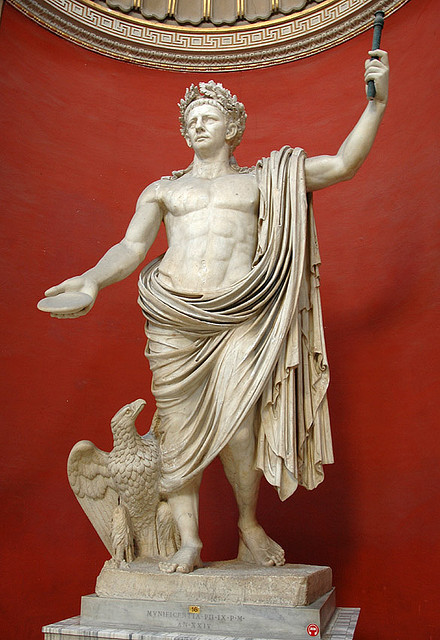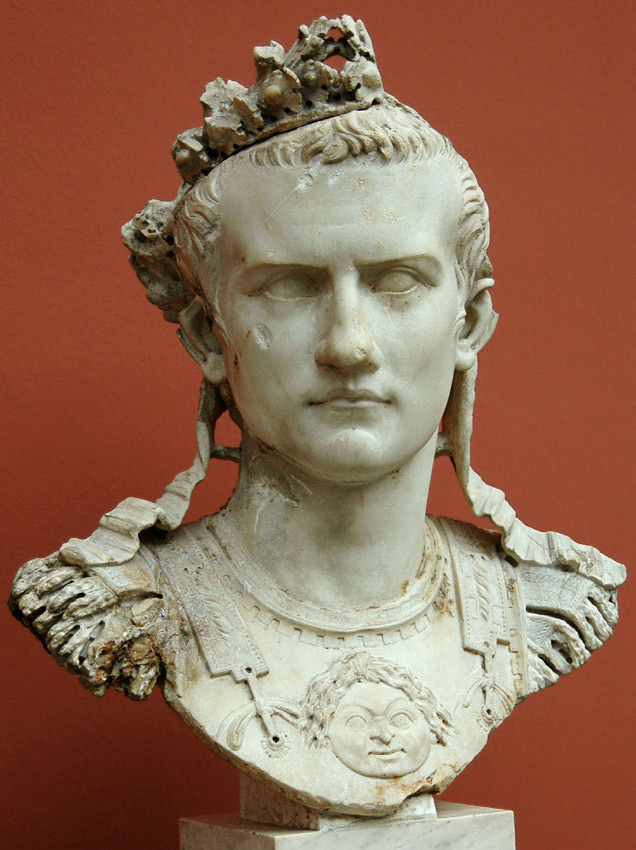I am about 1 ½ pages into Tacitus’ Annals and I think this is a myth that needs to be talked about. Not just here on Tumblr, but one that many believe to be true from what I have heard.
It’s the myth that Tiberius never wanted power and was a humble guy to start with. Or in general, during his time in power until he became old and paranoid.
While reading Tacitus’ Annals, Tacitus speaks about Tiberius’ relation to the senate and general relation to the power he obtained after Augustus’ death.
“For Tiberius would inaugurate everything with the consuls, as though the ancient constitution remained, and he hesitated about being emperor. Even the proclamation by which he summoned the senators to their chamber, he issued merely with the title of Tribune, which he had received under Augustus. The wording of the proclamation was brief, and in a very modest tone. “He would,” it said, “provide for the honours due to his father, and not leave the lifeless body, and this was the only public duty he now claimed.” (Tacitus, Book 1, Alfred John Church and William Jackson Brodribb).
It is clear here that Tiberius attempting to go through the senate with his actions as a ‘proper’ ruler would attempt to do. However, it is quite possible Tiberius was only trying to calm the senate during the transition of power. However, it is clear that Tiberius disregarded popular opinion with executing Agrippa Posthumus. If Tacitus wrote the events in a linear fashion, which one is inclined to believe given the narrative, Posthumus died quite shortly after Augustus died and Tiberius took power and before Augustus’ funeral arrangements. Hence, Tiberius is only attempting to please the senate to avoid a scene. Not only this, but playing humble would make the senators believe they still held power and make them less likely to assassinate Tiberius. Many seem to speak about Tiberius being paranoid in his old age, but it’s possible that he was always so and did a better job at hiding it when younger.
“As soon, however, as Augustus was dead, he [Tiberius] had given the watchword to the praetorian cohorts, as commander-in-chief. He had the guard under arms, with all the other adjuncts of a court; soldiers attended him to the forum; soldiers went with him to the Senate House. He sent letters to the different armies, as though supreme power was now his, and showed hesitation only when he spoke in the Senate.” (Tacitus, Book 1, Alfred John Church and William Jackson Brodribb).
Tacitus clearly states Tiberius only played humble to the senate and that is all possible. Aside from the humble front, Tiberius does seem quite attached to his power, given his letters to the troops. Not to mention the following:
“His chief motive was fear that Germanicus, who had at his disposal so many legions, such vast auxiliary forces of the allies, and such wonderful popularity, might prefer the possession to the expectation of empire. He looked also at public opinion, wishing to have the credit of having been called and elected by the State rather than of having crept into power through the intrigues of a wife and a dotard’s* adoption” (Tactius, Book 1, Alfred John Church and William Jackson Brodribb).
*Pardon me if this word is offensive- it is what is written in the the text.
Tiberius was clearly afraid of being removed from power from the start. A person who is humble would not be so worried about losing what they gained. According to Cassius Dio, Emperor Claudius reacted to his sudden elevation to power in this manner:
“In vain he drew back and remonstrated; for the more he [Claudius] attempted to avoid the honour and to resist, the more strongly did the soldiers in their turn insist upon not accepting an emperor appointed by others but upon giving one themselves to the whole world. Hence he yielded, albeit with apparent reluctance,” (Cassius Dio, Book 60, Earnest Cary).
And unlike Tiberius, Claudius continues to seem reluctant.
“He promptly accepted all the honours that were voted to him, except the title of Father, and this he afterwards took; however, Claudius did not enter the senate at once, but waited until the thirtieth day,” (Cassius Dio, Book 60, Earnest Cary).
Tiberius on the other hand seemed to get in touch with the senate far sooner; and also exercised his power. One could state it was a matter of calming them or creating a smooth transition of power. However, in the case of Claudius, he came into power right after a political assassination rather than a death of natural causes. Tiberius was also clearly wary of Germanicus rising up against him in the beginning and continued to be cautious. Not only of his son, but of everyone else. Tiberius would not have found reason to kill off his heirs if he did not want to remain emperor.
So, in conclusion Tiberius may have put on a humble front when it came to accepting power, but not while using it outside the presence of the senate. Not only this, Tiberius clearly feared losing his position as emperor from the beginning and given later events, would stop at nothing to maintain power.
Sources: http://classics.mit.edu/Tacitus/annals.1.i.html (Translated by Alfred John Church and William Jackson Brodribb)
http://penelope.uchicago.edu/Thayer/E/Roman/Texts/Cassius_Dio/60*.html (Translated by Earnest Cary)
Commentary © 2018 owner of thetwelvecaesars.com

